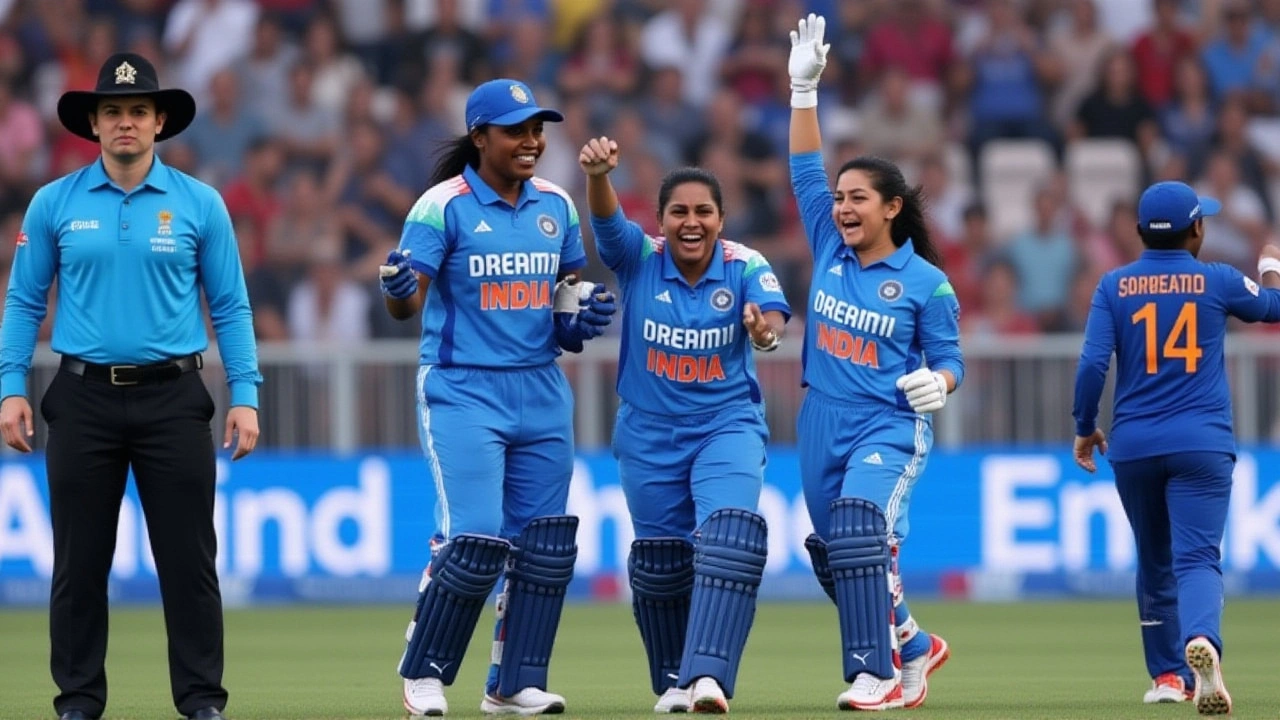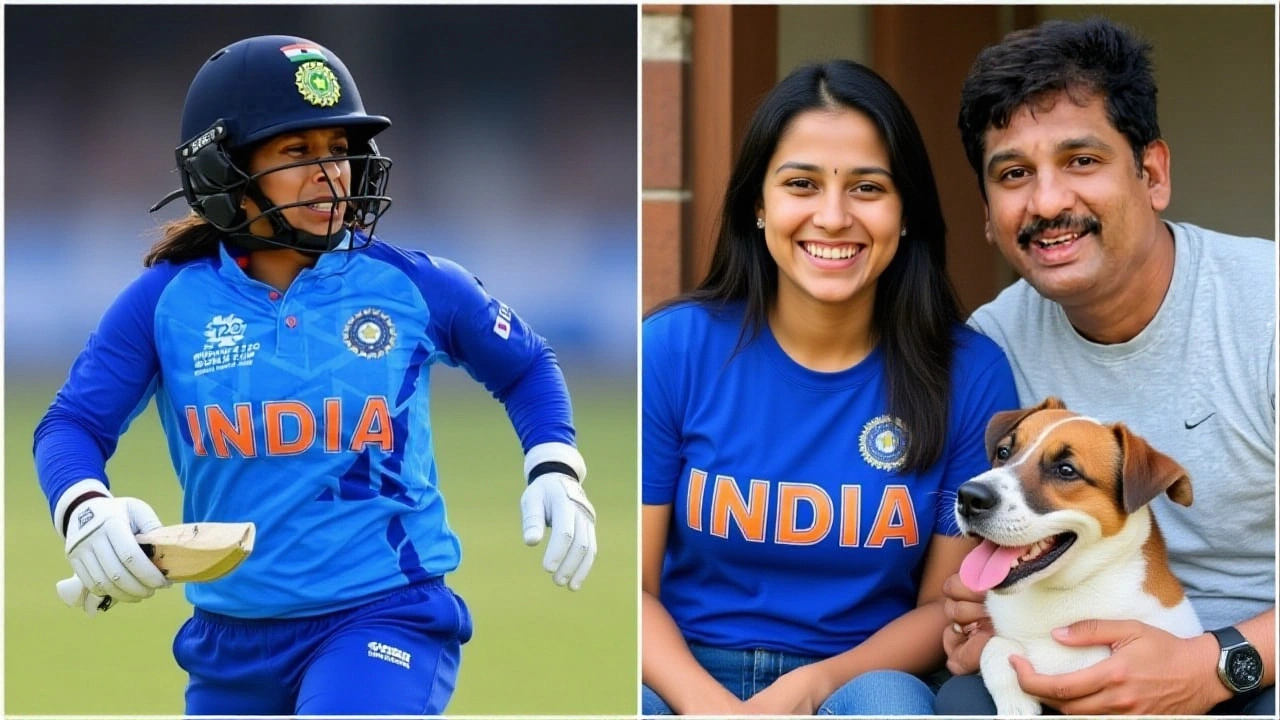When Jemimah Rodrigues, India women's cricket star learned that her three‑year honorary membership at Mumbai’s historic Khar Gymkhana had been pulled, the cricket world felt a collective gasp.
The club’s Annual General Meeting on AGMMumbai voted unanimously to cancel the honour, citing alleged religious conversion activities organised by her father, Ivan Rodrigues, through a group called Brother Manuel Ministries.
Background: How a cricketing honour became a flashpoint
Khar Gymkhana, founded in 1881, has long been a symbol of Mumbai’s elite social scene. Its membership list reads like a Who’s Who of Indian sport and business. In March 2023, the club broke new ground by granting Rodrigues the first ever honorary playing membership to a woman cricketer, a move praised for championing gender equity on the field.
Fast‑forward to October 2024, the same hall that once echoed with cricket chants was allegedly repurposed for a series of 35 events that featured "dancing, expensive music equipment, big screens" and, according to insiders, attempts at religious conversion. The controversy ignited when managing‑committee member Shiv Malhotra raised the issue during a routine audit.
Details of the alleged misuse
According to Malhotra, Ivan Rodrigues booked the presidential hall for nearly a year and a half, charging the club a "discounted rate" and waiving security deposits. He claimed the club ended up recovering more than ₹3.5 lakh in arrears tied to the 35 events.
- 35 events held between March 2023 and September 2024.
- Equipment—including high‑end sound systems—arrived in tempos on multiple occasions.
- Club’s Rule 4A expressly bans any religious activity on its premises.
- Club’s president Vivek Devnani later said no concrete evidence had been presented.
Former president Nitin Gadekar filed the motion that triggered the debate, arguing the club could not "turn a blind eye to conversion activities under our roof".
Reactions from the club’s leadership
During the AGM, Devnani read out the resolution: "The honorary three‑year membership given to Ms Jemimah Rodrigues was revoked pursuant to a resolution passed by the members who attended the general meeting held on October 20, 2024." He tried to frame the decision as a matter of club policy, not personal vendetta.
Malhotra, however, emphasized the spirit of the rule: "As per Khar Gymkhana's bye‑laws Rule 4A of the constitution, Khar Gymkhana does not permit any religious activity." He added that the club had to "recover arrears and protect the privilege of other members".
Gadekar, speaking before the vote, said: "Everyone agreed that while an inquiry must be initiated, Jemimah's club membership must be terminated immediately." His tone suggested a blend of procedural rigor and moral outrage.
Impact on Rodrigues and the wider cricketing community
The decision sent ripples through Indian cricket circles. Teammates on the India women’s team expressed disappointment but stopped short of commenting on the religious angle, noting they had no direct knowledge of the alleged events.
Fans on social media were split. Some defended Rodrigues, calling the move “politically motivated” and pointing to the upcoming club elections as a possible driver. Others worried about the precedent of allowing private religious gatherings in shared community spaces.
For Rodrigues herself, the loss of the honorary membership means she can no longer use the club’s facilities for training or social events—a tangible blow for a player who often cited the gymkhana’s coaching staff as a valuable resource during her formative years.
Legal and constitutional nuances
Khar Gymkhana’s constitution, drafted in the early 2000s, contains a clause explicitly prohibiting "any religious activity" on its grounds. While the rule is clear, critics argue that its enforcement has historically been selective, often applied to political or religious gatherings that clash with the club’s elite image.
Legal experts note that, under Indian law, private clubs can set such restrictions, but they must also ensure due process. "If the allegations are not substantiated with concrete evidence, the revocation could be challenged on grounds of arbitrary action," said Anita Mehta, a constitutional lawyer based in Mumbai.
What’s next for the club and the Rodrigues family?
The AGM also scheduled elections for the governing board in early 2025, a timeline that has fueled speculation that the revocation could be a strategic move to rally certain member blocs.
Both Jemimah and Ivan Rodrigues, who is currently in Dubai, have remained silent despite repeated outreach from journalists. Their silence leaves many questions unanswered, from the exact nature of the events to whether any legal action will be pursued by the family.
Historical context: Religion, clubs, and Indian society
India’s elite clubs have a long‑standing tradition of keeping politics and religion out of their halls, a practice that dates back to the colonial era when clubs served as a refuge for the British expatriate community. In recent decades, however, there have been occasional flashpoints—most notably the 2016 controversy at a Pune country club over a fundraiser for a Hindu nationalist group.
The current episode at Khar Gymkhana reignites that debate, highlighting the friction between private religious expression and communal secularism in shared spaces.
Key Facts
- Who: Jemimah Rodrigues, Indian women’s cricket star.
- What: Honorary three‑year membership revoked.
- When: Decision taken at AGM on 20 Oct 2024.
- Where: Khar Gymkhana, Mumbai.
- Why: Alleged religious conversion events organized by her father, Ivan Rodrigues, through Brother Manuel Ministries.

Frequently Asked Questions
How does this decision affect Jemimah Rodrigues' cricket career?
The revocation strips her of access to Khar Gymkhana’s training facilities and networking events, which she previously used for off‑season conditioning. While it doesn’t impact her central contracts with the BCCI, the loss may limit her exposure to certain sponsors who value club affiliations.
What evidence exists of the alleged religious events?
Club officials cited booking logs showing 35 events, invoices for audio‑visual equipment, and a ledger of waived security deposits totaling over ₹3.5 lakh. No independent audit or police report has been released, and both Ivan and Jemimah have declined to comment.
Could the club face legal challenges over the revocation?
Legal scholars say the club’s constitution does allow it to ban religious activities, but the enforcement must be non‑discriminatory. If Rodrigues can demonstrate the decision was driven by politics rather than policy, a court could deem the action arbitrary.
What does this incident reveal about religious dynamics in Mumbai's elite clubs?
It underscores a growing sensitivity toward any perceived religious proselytising in spaces traditionally seen as secular. As Mumbai’s social clubs attract diverse members, they are increasingly vigilant about maintaining a neutral environment.
What are the next steps for Khar Gymkhana?
The club will hold board elections in early 2025, during which candidates are expected to campaign on a platform of transparency and strict adherence to the bye‑laws. A review of all hall bookings is also planned to prevent future controversies.
